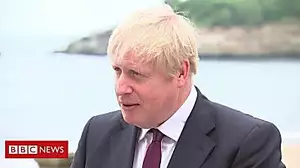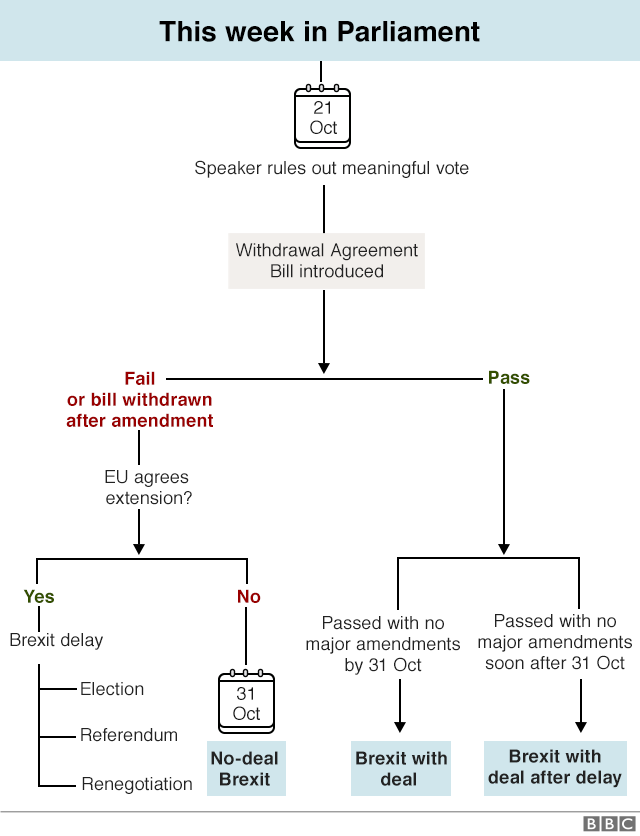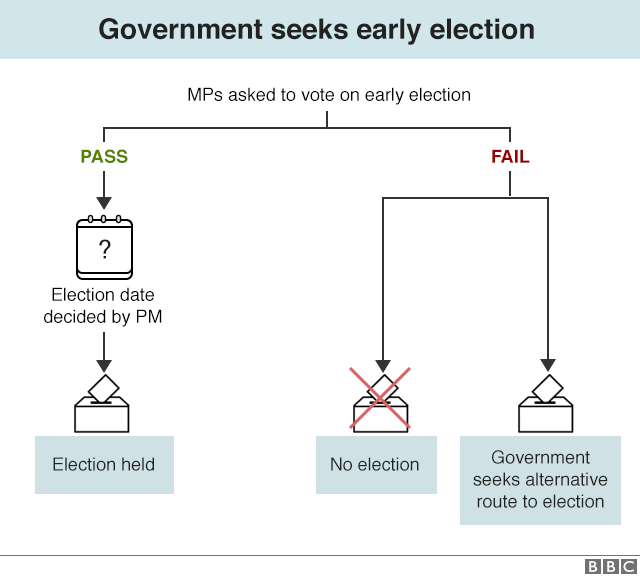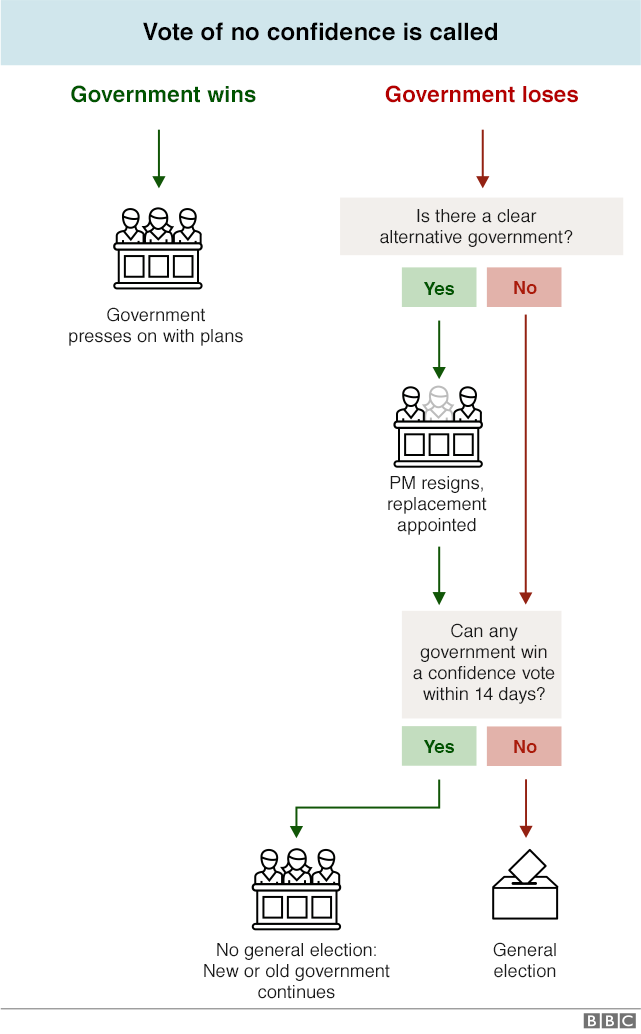
Prime Minister Boris Johnson has agreed a revised Brexit deal with the EU and MPs have voted to allow the government's bill on it to go forward to the next stage in the parliamentary process.
But they have rejected the rapid timetable which would only have allowed three days of debate in the House of Commons.
Mr Johnson wanted the law passed quickly so Brexit on the terms of his new deal could happen on 31 October. It will now be almost impossible to meet that deadline.
The prime minister had said that he might withdraw the bill and seek to hold an early general election instead. But immediately after the vote on the timetable for the bill he said it would be paused and that he would speak to EU leaders.


On Monday the Speaker of the House of Commons ruled that there couldn't be another meaningful vote on the deal because MPs had already considered that question on Saturday.
So instead MPs have moved to consideration of the bill. If it passes all stages in Parliament it would put the Brexit deal into UK law.
The prime minister sent a letter to the EU formally requesting a Brexit delay until 31 January 2020, as he was legally required to do, even though he doesn't want an extension.
Now that the bill almost certainly won't be passed in time he will either have to accept an extension - assuming the EU agrees - or push for a no-deal Brexit.
There could be a short extension to allow more time for the bill. Or the government could still decide to cancel it all together - and seek an early election instead.
Extension request
The EU is currently considering the UK's extension request. All 27 EU nations must agree to an extension. If they agree to an extension until 31 January 2020 that will become the new date for Brexit.
If the EU proposes a date other than this, even a short "technical extension" of a few days, the prime minister must approve it unless a motion is put before MPs and they decide not to pass it.
If the EU refuses to grant the UK a delay then Brexit will happen on 31 October at 23:00 GMT.
Leaving without a deal (or withdrawal agreement) means the UK would immediately exit the customs union and single market - arrangements designed to make trade easier.
Early election
An early election is widely expected after 31 October when Brexit is currently scheduled to happen. It's unclear, though, whether that would be later this year or early next year.


If Brexit is delayed, the House of Commons might be asked again by the government to back an early general election. That requires a 2/3 majority in the House of Commons and so far MPs have not been prepared to agree.
An alternative route for the government would be a short new law specifying the date of an early general election - this would require only a simple majority and not need two-thirds of MPs.
There is another much more dramatic way - the prime minister could call a vote of no confidence in his own government.
Vote of no confidence


At any point the opposition could call a vote of no confidence in the government. Labour leader Jeremy Corbyn has previously said he would table such a motion.
If more MPs vote for the no-confidence motion than against it, there would then be a 14-day window to see if the current government - or an alternative one with a new prime minister - could win a vote of confidence.
If no-one does then a general election would follow.
Another referendum
There could also be another referendum although it would certainly require a Brexit delay and, most likely, a change of government first.
The referendum could have the same legal status as the one in 2016. It would be advisory, and the government would have to decide how to respond once the result was known.
An alternative would be to hold a so-called "confirmatory" referendum. That would be between a particular Brexit deal and remain - or possibly with no deal as an option. The result of this kind of referendum would be legally binding.
Either way, the new referendum would require legislation to be held. There would also have to be time for the Electoral Commission to consider the question wording - especially if it's a referendum with more than two options.
Experts at the Constitution Unit at University College London say it would take a minimum of 22 weeks.
Cancel Brexit
There is also the legal option of cancelling Brexit altogether by revoking Article 50.
But clearly, this is not something the current government is contemplating - so it's only really possible to imagine this outcome after a change of government.
The Liberal Democrats have said that if they won a majority in the House of Commons they would revoke Article 50 and cancel Brexit.
